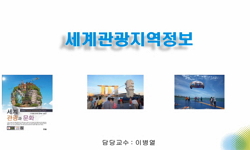Traditionally, tourists spend their holidays in tourist spaces that provide the needed infrastructure for their experiences (i.e., hotels, restaurants, sight-seeing spots). However, nowadays tourists often occupy more residential space than in the pas...
http://chineseinput.net/에서 pinyin(병음)방식으로 중국어를 변환할 수 있습니다.
변환된 중국어를 복사하여 사용하시면 됩니다.
- 中文 을 입력하시려면 zhongwen을 입력하시고 space를누르시면됩니다.
- 北京 을 입력하시려면 beijing을 입력하시고 space를 누르시면 됩니다.
https://www.riss.kr/link?id=A105447775
- 저자
- 발행기관
- 학술지명
- 권호사항
-
발행연도
2018
-
작성언어
English
-
주제어
tourism dilemma ; tourist ; residence ; DMO ; overtourism
-
KDC
325
-
등재정보
01
-
자료형태
학술저널
-
수록면
635-636(2쪽)
- 제공처
-
0
상세조회 -
0
다운로드
부가정보
다국어 초록 (Multilingual Abstract)
Traditionally, tourists spend their holidays in tourist spaces that provide the needed infrastructure for their experiences (i.e., hotels, restaurants, sight-seeing spots). However, nowadays tourists often occupy more residential space than in the past; this development is fuelled at least by two important trends in tourism. First, destination marketing organizations (DMO’s) increasingly seek to intertwine tourists‘ paths with local neighbourhood in order to create perceived tourist authenticity (e.g. the ‘localhood’ strategy of various city tourism organizations; Wonderful Copenhagen, 2017). Second, shared economy offerings, such as Airbnb, create tourist spaces in residential areas (Gutierrez et al., 2017). Both developments result in the integration of tourists into the residents’ living sphere, and anecdotal evidence indicates that this does not come without fraction between residents and tourists (e.g., Andereck et al., 2005; Gutierrez et al., 2017; Yang et al., 2013). Specifically, residential infrastructure as well as residents’ cultural identity may be impaired by tourism that digs its way through residential areas (Yang et al., 2013). As a consequence, residents often perceive urban tourism in their neighbourhood as ‘overtourism’ and a threat to their group, overall leading to low support for tourism development and negative attitudes towards tourists. This might negatively influence the tourism of the place, since the friendliness and hospitality of the local people are an important factor of the touristic experience (Kim, 2014). While the two mentioned developments of DMO’s ‘localhood’ strategy and Airbnb are likely to further fuel this trend, surprisingly little is still known about the perceptions of both tourists and residents, and the consequences for tourism performance. Against this background, the present research sets out to investigate the potential dilemma between the localized (and allegedly authentic; Lu, Chi and Liu 2015) tourist experience and the effect on residents‘ predispositions towards tourists and tourism itself. An initial question this research aims to answer is whether tourists indeed prefer and seek the authentic experience of ‘localhood’. Examining the issue of tourists’ perceived authenticity is crucial because it is the underlying assumption of DMO’s ‘localhood’ strategy. Second, this research sets out to investigate both residents’ and tourists’ perceptions of this development, mapping out potential consequences in a structural equation modelling approach. Specifically, this study aims to understand what drives residents’ perceptions of ‘overtourism’ and how this in turn affects their predispositions towards incoming tourists and tourism itself. In a third step, the consequences of these predispositions on tourists’ experience in the residential tourist space are analysed.
동일학술지(권/호) 다른 논문
-
FRONTLINE EMPLOYEES’ BEHAVIOR IN SERVICE RECOVERY: THE COMBINATION CAUSES OF SELF-REGULATING PROCESS
- 글로벌지식마케팅경영학회
- Mo Zhang
- 2018
- 01
-
ALL HAIL GOOGLE LLC; GOOGLE SCHOLAR AS AN ALTERNATIVE SYSTEMATIC LITERATURE REVIEW TOOL
- 글로벌지식마케팅경영학회
- James Durl
- 2018
- 01
-
- 글로벌지식마케팅경영학회
- Zhe Zhang
- 2018
- 01
-
- 글로벌지식마케팅경영학회
- Rayan S. Fawaz
- 2018
- 01




 코리아스칼라
코리아스칼라





